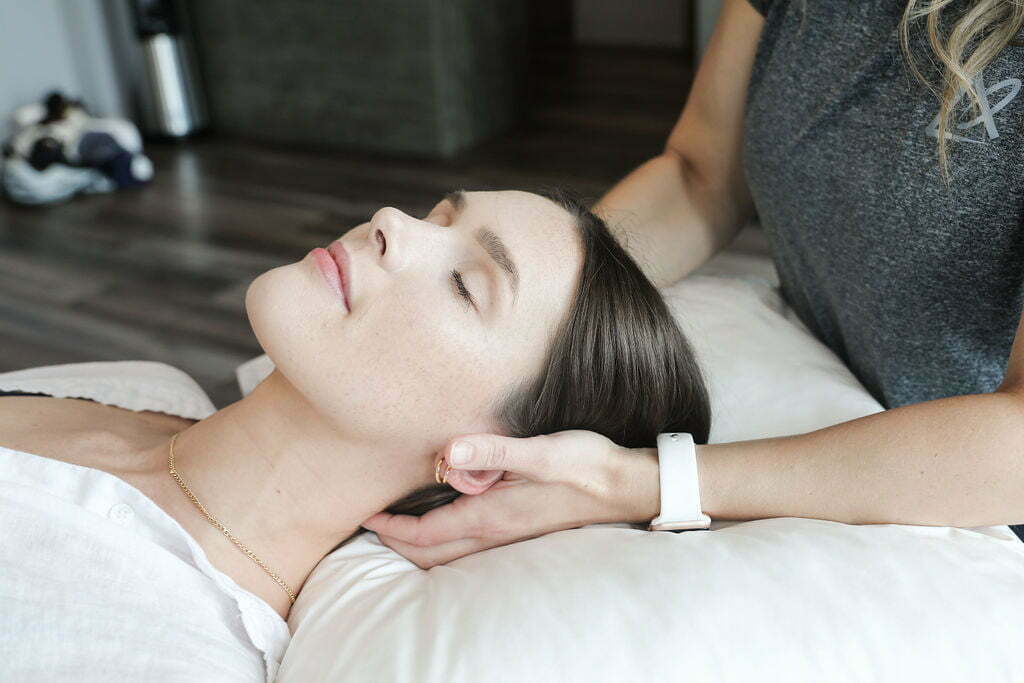A neck strain is an injury to the muscle or tendon in the neck that generally occurs when the neck muscle or tendon stretches too far and tears.
A neck sprain is an injury to the ligaments in the neck.
Symptoms of a neck sprain or strain are similar and can vary based on the size of the tear and location.
A neck strain can be classified from Grade I – Grade III.
Grade I is a mild strain with partial tearing. Pain is typically mild.
Grade II is a moderate neck strain where more muscle fibers are torn. You could experience some muscle weakness as well as mild to moderate pain.
Grade III is the most severe type of neck strain. The muscle has completely torn in a Grade III tear. Pain is severe.
Neck sprains and strains causes
Generally, neck strains or sprains are caused by an injury to the neck. Injuries to the neck can occur from a car accident, a direct blow that causes your head to be flung backward or forward or from when a force lands on the top of the head.
Other causes of neck sprains or strains include:
- Poor posture
- Lifting a heavy object
- Falling
- Performing a new activity
- Repetitive motions or activities that require repetitive motions
- Diseases such as Rheumatoid Arthritis, Ankylosing Spondylitis
Neck sprains and strains symptoms
The most common sign of a neck sprain or strain is a pain in combination with a decreased range of motion.
Other symptoms of neck sprains or strains include:
- Headache
- Muscle tightness or spasms
- Inability to perform daily activities
- Weakness, numbness or tingling potentially associated with nerve irritation or damage
- Stiffness in the neck
- Problems chewing, swallowing or breathing
Neck sprains and strains risk factors
- There are a variety of factors that can increase your likelihood of developing a neck sprain or strain, including:
- Performing activities that require repetitive movements
- Having surgery on the neck
- Sleeping in an awkward position
- Maintaining a poor sitting or standing posture
- Suffering a bone fracture in the neck
Neck Pain Treatment Options
There are many treatment options that your physiotherapist will discuss with you in the treatment of your pain. Treatment varies based on the source of your symptoms.
Neck Brace
A neck brace or soft collar may assist in severe neck pain, instability or neurological signs. They are certainly less commonly prescribed than ten years ago.
Acupuncture or Dry Needling
Acupuncture has been a valuable source of pain relief. Ask your physiotherapist for advice.
Massage
Massage always feels lovely, plus it has terrific muscle relaxation benefits. Neck massage is beneficial when muscle spasms or chronic muscle tension is present. Regular remedial massage is also a convenient neck pain prevention strategy.
TENS Machine
TENS machines are electronic pain-relieving devices that reduce your neck pain and your need for pain-relieving drugs.



